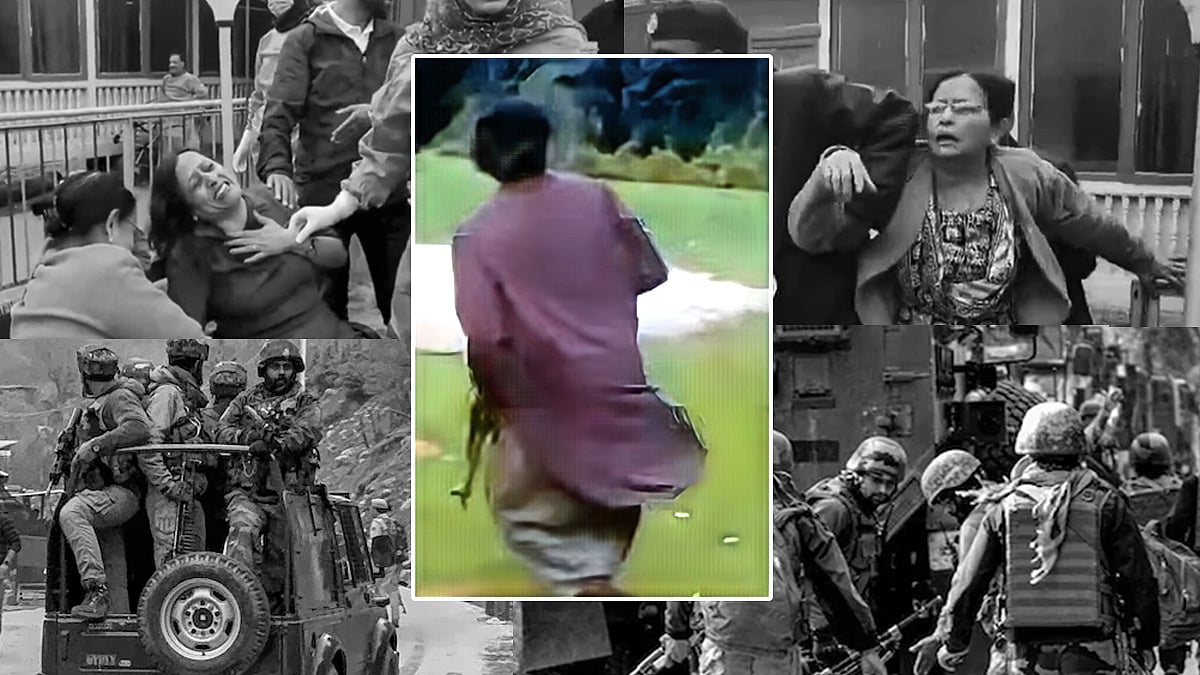No amount of condemnation will be commensurate to cover the heinous and dastardly nature of the attack that led to the deaths of at least 28 people in Pahalgam on Tuesday, April 22, 2025. It is a cold-blooded massacre that curdles our blood. The Resistance Front, thought to be a proxy for Lashkar-e-Taiba, has claimed responsibility. Reports say one of the perpetrators refrained from killing a tourist with a message: “Go tell Modi.” It does not take much imagination to conclude where the message stems from. It also does not matter what jumble of alphabets the organisation goes by. A terrorist is a terrorist is a terrorist.
As recently as a week ago, the Pakistani Army chief, Lt General Asim Munir, promised Pakistan would go for the jugular, which he defined as Kashmir. For those with short memories, this is what he said: “Our stance on Kashmir is absolutely clear. It was our jugular vein, and it is our jugular vein. We will not forget it, and we will not leave our Kashmiri brethren in their heroic struggle against the Indian occupation.” A week later we have Pahalgam. Consider the pointed remarks of the Director General of the Inter-Services Public Relations, Lt General Ahmed Sharif, who squarely blamed his “eastern neighbour” for the attack in March on Jaffer Express and its hijack. He said, “The main sponsor of terrorism in Balochistan and in past incidents is our eastern neighbour. The Jaffer Express attack is a continuation of India’s terrorist mentality.” A month later we have Pahalgam. Last January, the then Pakistan foreign secretary, Muhammad Syrus Sajjad Qazi, blamed India for running a “sophisticated and sinister” campaign of “extraterritorial and extrajudicial killings” inside Pakistan. A little over a year later, we have Pahalgam.
It does not take much imagination to work out that ever since the abrogation of Article 370, Pakistan has been waiting for the moment to burst the bubble that suggested that things in Kashmir were now normal. It has been officially and repeatedly declared that the Abrogation of Article 370 had not only ended terrorism in the Valley but also the terror ecosystem along with it. That assessment has been effectively put paid to by the Pahalgam attack. There is no other way to look at it: Things are clearly not hunky-dory there, as had been presumed and widely advertised. In that connection, the government must first clearly and overwhelmingly establish that the attack is not a result of any form of local alienation.
Unfortunately, almost all of those who lost their lives are the ones who must have bought into the narrative that normalcy had returned to the Valley. Which brings us to the question: what additional security measures were put in place consequent to the open threat articulated by General Asim Munir? Reports do not indicate a substantial reinforcement of security in the area. An investigation will no doubt establish lacunae in the security provided to make the area safer for tourists. We must know what the security forces were doing as the attack unfolded. Was there complacency in being busy at work here? Despite repeated assertions that statehood would be restored, the signs of the revival of statehood have unfortunately not matched the pace of the many announcements to that effect. It is indeed baffling that the Prime Minister has not yet found time to inaugurate the Katra-Sangaldan stretch of the Udhampur-Srinagar-Baramulla Rail Link (USBRL), India’s rail link to Kashmir. Are security planners worried about a Jaffer Express situation? Security is with the Lt Governor, not the Chief Minister. There is no role of the state government in this. Clearly, someone has lost the plot. The blame must be assigned in correct proportions.
The question that presents itself before us now is: Is Pahalgam a one-off attack? No doubt that the single attack has exposed some infirmities in our assumptions on the situation in Jammu and Kashmir. Those who have planned trips to the region are bound to be asking this question most of all.
The Prime Minister has rightly cut short his trip to Saudi Arabia to take stock of the situation and determine the next steps. The government now finds itself between a rock and a hard place. Yet the attack comes at a prolonged moment of flux in the affairs of the world, with Israel and Russia taking matters into their own hands. It is no doubt a tempting moment. On Pahalgam, both Russian President Vladimir Putin and American President Donald Trump have made their thoughts clear. It should help concentrate the minds of our security planners as they frame a response to the attack. The first step will be to establish what exactly happened at Pahalgam. It will be important to address the communal colouring being given in some quarters to an attack that is plainly terrorist in nature. We do not, for instance, even know the names of the foreigners who have been reported to have been killed in the attack. Both in the Jaffer Express attack and in Pahalgam now there is talk that American weapons, which Afghanistan is awash in after Washington’s retreat, were used. The nation needs clarity, and urgently. The likelihood of the Amarnath Yatra two months hence this year is also in the balance. Pakistan has predictably begun denying any role in the attack, but that is neither here nor there. This is also the time the rest of the world should come forward as one to effectively cuff Pakistan from undertaking cross-border terrorism and help dismantle the terror infrastructure aimed at India.
